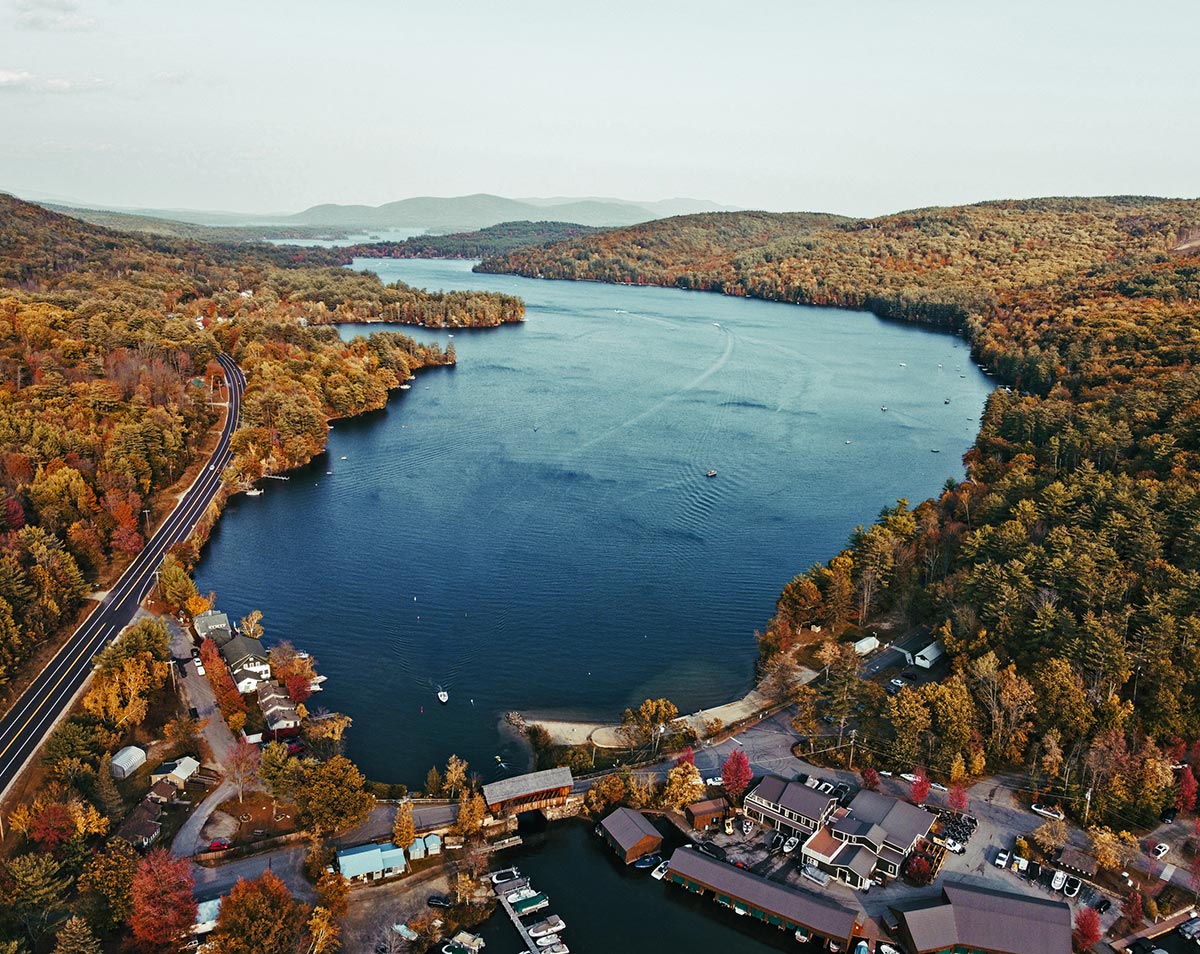
 Diving into Drinking Water
Diving into Drinking WaterTeaching Lecturer Megan Heidenreich is now in her third year of running a TWP course concerned with one of life’s essentials: drinkable water. Her class includes students from a variety of disciplines, which Heidenreich encourages classmates to work across. Students combine their creativity to make a difference through team projects.
“We try to look at water from the perspective of safety, supply, law, business, and art,” says Heidenreich. “I find that if students connect to the issue of drinking water personally, they create meaningful projects and learn a lot.”
Students must connect to communities outside of their PSU classroom. In 2019, Halie Hurd ’23 coordinated a hike with the New Hampshire Department of Environmental Services to learn about point and non-point pollution along the Merrimack River in Bedford, NH. Jack Henry ’23, Kevin Henry ’23, and Johnathan Swenson ’23 contacted town leaders in North Hampton, NH, to learn more about the town’s boil water order. Some of last year’s students contacted State Representative Suzanne Smith to discuss PFOAs (chemical contaminants) in New Hampshire and also coordinated a trash clean-up at Livermore Falls in Holderness, NH.
“I’m fascinated by water and really like this class,” says Courtney Peabody ’25, a Fall 2021 semester student from rural Maine. “Learning about drinking water is really interesting to me because where I live it’s wicked clean and clear, so I don’t question it. Most people in the class don’t have that and I’m learning how it is all over the world.”
Students pick up many useful skills and tools through their outreach. One group’s collaboration with NH Lakes, a nonprofit organization, yielded a multipage tip sheet on “Advocating Effectively for Our Lakes with the New Hampshire Legislature” (which includes the encouraging line, “Is not as scary as it seems!”), while another’s research found the Three Rivers Rain Garden Alliance’s calculator, which estimates optimum garden size, plant numbers, and associated costs relative to expected rainfall. These are among the course’s many Resources for Project Team Creation available to students as they plan their work.
Peabody’s group partnered with Plymouth Elementary School to educate third graders about drinking water, but first, in line with the course’s self-directed learning objective, they had to teach themselves how to teach young children. Heidenreich, the mother of a third-grade son, was tapped for her first-hand knowledge, and some members of the group conducted research online.
A family friend and primary school educator was a source of information for Peabody, who is already looking ahead to the course’s career benefits. “This project will look good on my résumé since I’m going into education,” she says.